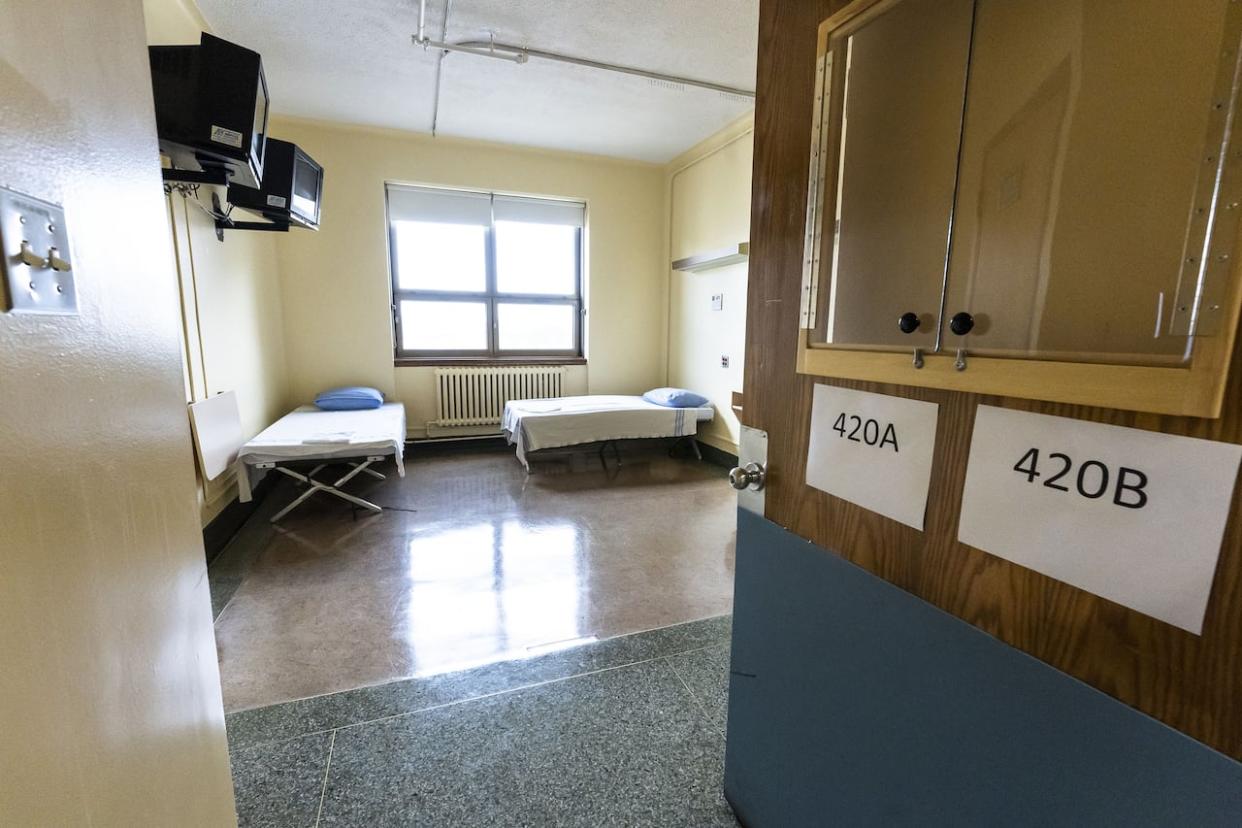Montreal's Hôtel-Dieu homeless shelter not equipped for many vulnerable clients, report says

Quebec's ombudsman has found the Hôtel-Dieu de Montréal 24-hour emergency shelter is not equipped to serve all of its residents.
In a released report on his investigation into the shelter, Marc-André Dowd says the shelter has neither the necessary staffing nor material resources to meet the needs of its residents who have health conditions such as reduced mobility, a geriatric profile or behavioural problems.
The Hôtel-Dieu shelter, which opened in the former hospital in July 2021, has room for 186 people and is always full. It's a unique shelter as it has elevators for people with reduced mobility, allows pets and offers more privacy than other shelters with dormitories. Each room has two beds.
The shelter also offers three meals a day and even pet food.
Quebec's ombudsman says he intervened because he had received reports about poor quality of care.
In his report, Dowd says the shelter's lack of human and material resources comes down to organizational flaws. He points out there were at least 22 residents who required specialized health care that were not getting it.
Dowd also says there were also no clear roles for each of the organizations involved in the shelter, creating conflict.
Missions and health agency run shelter
The shelter is run by the Old Brewery and Welcome Hall missions. The south-central health agency, the CIUSSS du Centre-Sud-de-l'Île-de-Montréal, funds the shelter and co-ordinates some of the services.
The shelter is in a building owned by the Centre hospitalier de l'Université de Montréal (CHUM).
Andrée-Anne Toussaint, spokesperson for the CHUM, said the Hôtel-Dieu shelter project was put together in record time in an emergency context in 2021.The facility was renovated and redeveloped by the CHUM whose mandate, as owner, was to provide suitable places to welcome this new clientele 24 hours per day, seven days per week.

James Hughes, president and CEO of the Old Brewery Mission, said facility offered much-needed housing and good food, but there were some communication issues. (CBC)
The shelter is set to close in July because its lease with the CHUM is expiring.
In his report, the ombudsman outlines five recommendations for the health authority, such as planning the relocation of residents who need health care and clarifying the roles of each of the organizations who will be involved in the new shelter, or shelters, before they move.
Other recommendations include preventing vulnerable people from being put in an environment that cannot meet their needs.
The ombudsman says all the recommendations were accepted and Dowd will be following their implementation closely.
Better communication could've helped
James Hughes, president and CEO of the Old Brewery Mission, said there were many successes when it comes to the shelter, but there were difficulties in offering services around the clock.
There were people who were welcomed into the shelter who required more needs than could be provided, but the alternative was to potentially send them back out into the streets, he said.
"Better communication could make sure those people, that very small percentage of people with ultra-high needs, would be placed in probably institutionalized facilities that were more able to support them," Hughes said.
Jean Nicolas Aubé, a spokesperson for the CIUSSS, said the health agency received the ombudsman report Monday and welcomes the recommendations. Actions on four out of the five recommendations have already been taken, he said.
The shelter was opened because those staying at the temporary one set up at Hotel Place Dupuis in downtown Montreal needed to be relocated, he said. Aubé also said it wouldn't have been possible to make this happen without the willingness and collaboration of the two missions.
Now that Hôtel-Dieu is closing, he explained, smaller facilities will be opened to replace the shelter and relocate residents. The aim, he added, is to keep the services in the same area.

